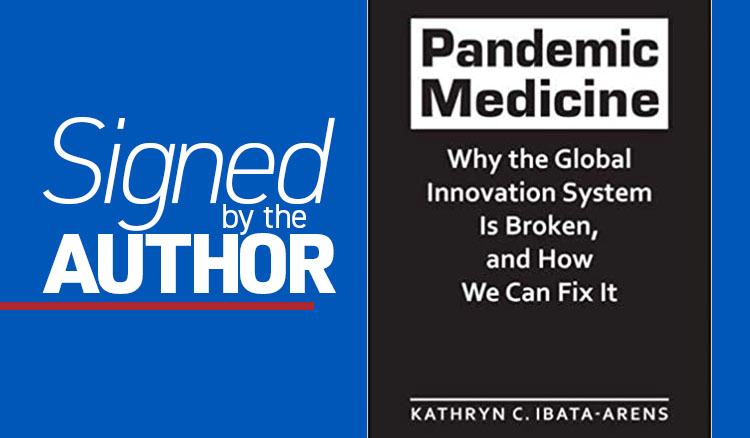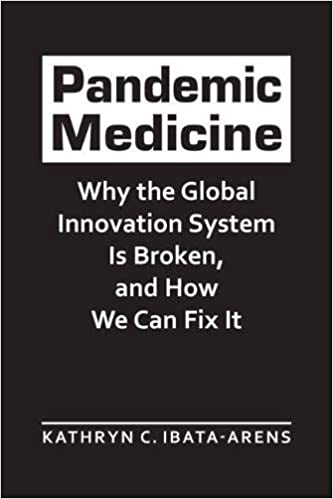 (DePaul University/Jeff Carrion)
(DePaul University/Jeff Carrion)
Pandemic Medicine: How the Global Innovation System is Broken, and How We Can Fix It
By: Kathryn Ibata-Arens, Vincent de Paul Professor of political economy
Despite a century of advances in modern medicine, as well as the rapid development of COVID vaccines, the global pharmaceutical industry has largely failed to bring to market drugs that actually cure disease. Why? How can government policies stimulate investment in the development of curative drugs? Is there an untapped potential for "natural medicines" in new drug discovery? How have private–public sector partnerships transformed the ways we innovate? To what extent are medicinal plant biodiversity and human health codependent?
 (Image courtesy of Lynne Rienner Publishers)
(Image courtesy of Lynne Rienner Publishers)Addressing this range of increasingly critical questions, "Pandemic Medicine" analyzes the rise and decline of the global innovation system for new drug development and proposes a policy framework for fast-tracking the implementation of new discoveries and preparing for future pandemics.
Who inspired you to write this book?
The short version on the story is Changhua Liu, a historian of Chinese medicine whom I interviewed for my previous book. In 2016 my husband, Cris, struggled with debilitating chemotherapy and radiation treatments for cancer. Dr. Liu gave me a supply of a traditional Chinese medicine -- a combination of natural plants commonly used in complementary oncology treatments in China but virtually unknown in the United States. Within two weeks of taking this traditional Chinese medicine, the color returned to Cris' face, and he had an appetite for the first time in six months. Now five years later, Cris is healthy. When I tried to thank Dr. Liu and offer to pay him for his generosity, he refused. I asked how could I possibly repay his kindness? Dr. Liu said simply, "You will find a way." This book is my way of sharing this precious knowledge about natural medicines, the biological materials in them and how we need to protect and conserve them on a global scale.
What's the most surprising thing you learned while writing this book?
I learned so many surprising things about the history of medicine in Asia, too many to count. However, two come to mind. The word "drug" is from the Dutch droghe vate, named for the barrels on Dutch trading ships for storing medicinal herbs taken from Asian countries for sale in 17th century Europe. The other is how hard the Indian government fought - at great financial cost - in the 1990s to keep ancient Indian medicine discoveries in the global public commons in the face of the U.S. granting patents on turmeric and other natural materials.
About the author:
Kathryn Ibata-Arens is a Vincent de Paul Professor of political economy at DePaul. Ibata-Arens teaches courses in international political economy, Asian Studies, as well as international relations and comparative politics. A scholar of innovation and entrepreneurship, science and technology policy and economic development, her most recent books are "Pandemic Medicine: How the Global Innovation System is Broken, and How We Can Fix It" and "Beyond Technonationalism: Biomedical Innovation and Entrepreneurship in Asia." In her journal articles, blogs, policy briefings, podcasts and books Ibata-Arens draws from original fieldwork-based case studies contextualized within global politics and markets.
Publisher, release date:
Lynne Rienner Publishers, August 2021
Signed by the Author allows DePaul faculty and staff to introduce their recently published or upcoming book or chapter to the university community. To submit your book or chapter for consideration, contact Newsline.